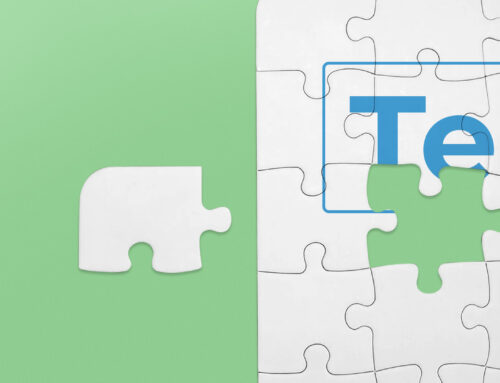This week’s DISC behavioural style tip from The DISC Group is all about people with the C Style – the Compliance style. By understanding the strengths, limitations, behaviours, and growth opportunities of the different DISC profiles, you can better communicate with and understand your colleagues to build a stronger team.
About the Compliance personality type
Compliance is just one type of personality identified by the DISC assessment. Alongside Dominance, Influence, and Steadiness, Compliance is a personality profile based on the work of psychologist William Moulton Marston who put forward DISC theory in his 1928 book, The Emotions of Normal People. In 1956, industrial psychologist Walter Clarke created the first ever DISC assessment. Today, an updated version of this assessment is used by more than a million people around the world each year.
Compliance, also sometimes referred to as Conscientiousness, is a personality style defined by an analytical and logical approach to tasks, an pragmatic outlook, and good problem-solving abilities. These individuals are creative and accurate in their tasks but tend to struggle with perfectionism.
Now, let’s look at some of the strengths and limitations of the C personality type.
Strengths of the Compliance style
The Compliance style’s strengths include accuracy, dependability, independence, clarification and testing skills, follow-through, and organisation. They often focus on expectations (e.g., policies, practices, and procedures) and outcomes. They are not natural risk takers, and they typically want to know how things work so they can evaluate how correctly they’re functioning. Getting things right is a key priority for people with this type of personality.
Both analytical and creative, people with this personality type are great at solving complicated problems and coming up with novel solutions. Detail-oriented and task-driven, they’re an asset to any team.
Limitations of the Compliance style
Because people with this personality type want to always do things right, they prefer checking processes themselves. This tendency toward perfectionism, taken to an extreme, can result in “paralysis by over analysis”. They can be more focused on getting things right than delivering on time. These overly cautious traits may result in worry that the process isn’t progressing right, which further promotes their tendency to behave in an over-critical manner (both of themselves and others).
In contrast to people-focused personality types such as Influence or Steadiness, C type personalities prefer to work independently. While this means that they can produce great work alone, their abilities can be limited by their desire to complete tasks on their own. They also struggle with conflict resolution, preferring to ignore potential interpersonal issues rather than resolve them quickly. This passivity can lead to a strained relationship with other team members.
Growth opportunities for the Compliance personality
While individuals with a high C score often excel at doing accurate and creative work, they tend to deliberate over decisions and spend too long collecting information. For success in the workplace and their personal lives, individuals with this personality profile can work on their ability to take risks and act decisively.
As leaders, individuals with these traits need to be careful that their instinct to perfectionism does not impact their subordinates. An overly critical C type leader can damage the motivation and cohesiveness of a team. When in these positions, C personalities need to adopt a more open and accepting leadership style.
For C types working with D types
While Compliance types love looking at the details and finding logical and creative ways to solve problems, Dominance types prefer looking towards the big picture and future goals. This means that the two personalities can complement each other perfectly when the individuals understand each other. C types might feel frustrated by D types who hurry them along and overlook key details in their pursuit of bigger goals. However, D types can teach them to stop getting lost in the details and move forward with tasks rather than sinking into perfectionism. To work best with people with the Dominance personality, C types need to work on communicating in a succinct and direct manner, linking the important details to the bigger picture.
For C types working with I types
Because C types tend to value privacy and independent work, individuals with the Influence personality might find them aloof or standoffish at first. To work effectively with I types, people with the Compliance profile should put extra effort into getting to know their team members, building relationships, and having casual chats before getting down to work. In many ways, C types and I types complement each other perfectly; I types can motivate and energise teams towards their goals while C types can provide a more detail-oriented approach. Together, their behavioural styles can help the team meet its goals.
For C types working with S types
People with the Steadiness personality are great team workers so it’s likely that S types and C types will often find themselves working together. S types are people-oriented, valuing teamwork and close connections with others on the team, so people with the Compliance style should try to get out of their shell and work collaboratively.
For C types working with other C types
When working with other C types, there’s a tendency to get bogged down in the details, worrying about making everything perfect instead of looking at the bigger picture. C types working together need to be wary of this perfectionist trait, remembering that sometimes a project needs to go ahead, even without every detail being perfect.
Conclusion
A creative and analytical approach, attention to detail, and a naturally inquisitive nature are traits that makes the C personality style an asset to any team. While the high standards and tendency to criticise are limitations that may hold this DISC profile back, it’s possible to overcome these challenges to become an even better team member or leader.
Want to learn more about the different DISC personality types? Read about the strengths and limitations of the Dominance, Influence, and Steadiness styles.
To learn more about your own DISC profile – and those of the people you work with – and how you can use that knowledge to build better working relationships, contact DISC Group today.
You can also call Disc Group at 0203195 2898 or email the team at sales@thediscgroup.co.uk.





